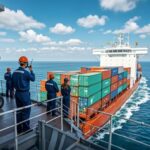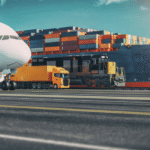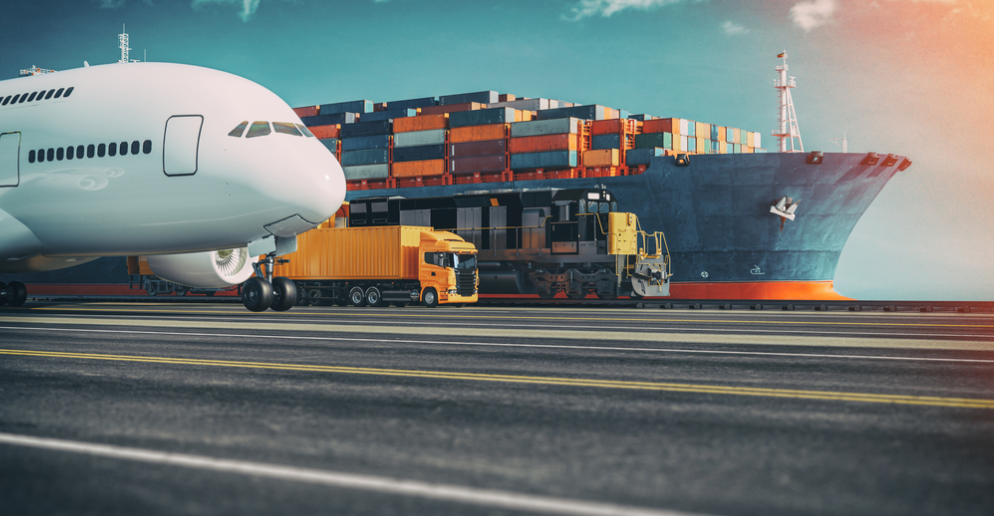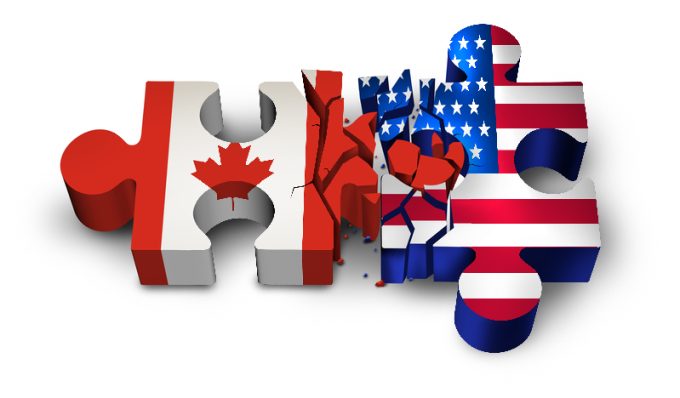According to a report issued by Impact International, global trade is still rooted in exploitative practices in 2025. The organization indicates that About 27.6 million workers Around the world are trapped in forced labor situations, and another 152 million children are involved in unethical labor practices.
Read also: How digital payments are redrawing the map of global trade
While international supply chains are driving unprecedented levels of efficiency and economic prosperity, there appear to be high costs to this level of productivity. Many cases Human rights violationsOpaque supply chains and dangerous business environments highlight the fragile balance between efficiency and exploitation in global trade.
Anatomy of the efficiency of global trade
The rise of global trade has fostered a highly interconnected international market, providing access to a wide range of competitively priced goods and services around the world. However, this globalization has encouraged companies to move production to regions with lower operational costs, where labor is more affordable and regulations are often less stringent.
But today’s supply chains are often multi-layered, spanning countries and continents, and involving complex production, logistics and delivery networks. While many companies monitor their direct suppliers, labor exploitation often occurs further down the chain, in areas with limited supervision or weak regulatory enforcement.
These complex networks can create conditions that promote unethical practices, including unsafe and unregulated work environments, wage theft, and forced labor. In extreme cases, it may even involve human trafficking or the use of forced child labour. Many workers in these environments also lack basic protections, such as access to workers’ compensation and fair labor guarantees, leaving them vulnerable to injury and exploitation.
The hidden costs of affordable goods and services
The comparative advantage trade model has enabled industries to achieve maximum efficiency at scale. This model allows them to offer affordable products and services to consumers. It also creates more competitive local and international economies and significantly enhances supply chain outcomes. However, these benefits mask the hidden costs associated with “cheap” goods.
Industries under high cost and efficiency pressures tend to bear the highest risks of exploitation. One prime example is the electronics industry. According to A GEA Report July 2025Electronics companies are facing increasing pressures, with 61% of companies surveyed citing rising material expenses and another 54% citing rising labor costs as key drivers of these pressures.
Impact International reports that workers in Central America and Asia face ongoing threats Forced labor and unfair production quotas To meet the demand for electronics. Many of these workers are also left without basic protections, such as access to adequate care Workers’ compensation for specific injuriesWhich makes them vulnerable when accidents occur in unsafe work environments. Trafficked workers and children are a constant presence in electronics labor markets as well, all to help companies meet the growing demand for technology products.
Environmental costs of efficiency
The millions of workers around the world facing poor working conditions represent only one part of the cost of efficiency in global trading systems. There is also a significant environmental cost associated with expanded supply chains. Developing countries usually bear the bulk of this environmental bill.
Many developing countries have relaxed or poorly enforced environmental laws. This is often done deliberately to attract investment from high-value manufacturers. These regulatory gaps may benefit companies. However, it leaves developing countries vulnerable to increased risks of:
- Resource drain
- Environmental destruction
- Poor organization of chemical and industrial waste management
- Ongoing health risks related to manufacturing
- Pollution is widespread
Recent climate-focused trade regimes, such as the European Union’s Green Deal, Germany’s Federal Climate Adaptation Law, and China’s Ecological and Environmental Law, seek to mitigate these challenges. They are also designed to balance the requirements of global trade and environmental best practices. However, these regulations all place significant compliance burdens on global suppliers.
yet World Bank It is reported that these policies often disproportionately affect developing countries and that their effects cause a decline in business operations. This, in turn, could hinder their progress on social, environmental and economic development plans.
Finding Balance: Accountability as a Tool for Ensuring Moral Competence
Transparency and accountability in global trading systems may be the most effective tools available to ensure continued efficiency, without sacrificing ethical processes. There is now a growing trend of governments shifting the burden of proof to cross-border trading companies.
Legal frameworks They are quickly catching up to address ongoing exploitation in trade as well. The new laws seek to impose a comprehensive ban on forced labour, and many are demanding full transparency in the supply chain to address regulatory blind spots.
These laws include:
These developments are indeed positive. However, data shows that it must be combined with consistent implementation to be effective.
Beyond regulatory compliance, companies are increasingly expected to ensure that workers at every level of their supply chains have access to protections such as safe working conditions, fair wages, and workers’ compensation.
Frameworks focusing on human rights and the environment can also promote fairer trade. Tools such as advanced supply chain mapping and fair trade structures provide a clearer view of supply chain operations. They emphasize fair labor practices and fair wages, without compromising on efficiency.
Redefining efficiency in global trade
The world’s trading systems and economies are at a critical crossroads. Efficiency remains important to meet the growing demands of global consumers. Outdated efficiency models must be replaced by new ethical and legal frameworks to ensure that these demands are met ethically.
Perpetual change in international supply chains requires a major shift in corporate operations, and businesses look ESG commitments As part of building resilient and responsible supply chains, they will be better equipped to maintain efficiency. Most importantly, they are able to do so while avoiding unfair labor practices and environmental damage.
The real progress today’s companies make lies in embracing ethics as the foundation of competitive markets. Profit will always be an undeniable driver in global trade. However, balancing this need for profit and protecting the planet and people is absolutely vital to achieving economic justice around the world.
Definition title: Efficiency versus exploitation in global trade | World Trade Journal
a description: Efficiency is essential in global trade, but increased demand can lead to exploitation and harm. It is essential that business partners balance ethics and efficiency.










